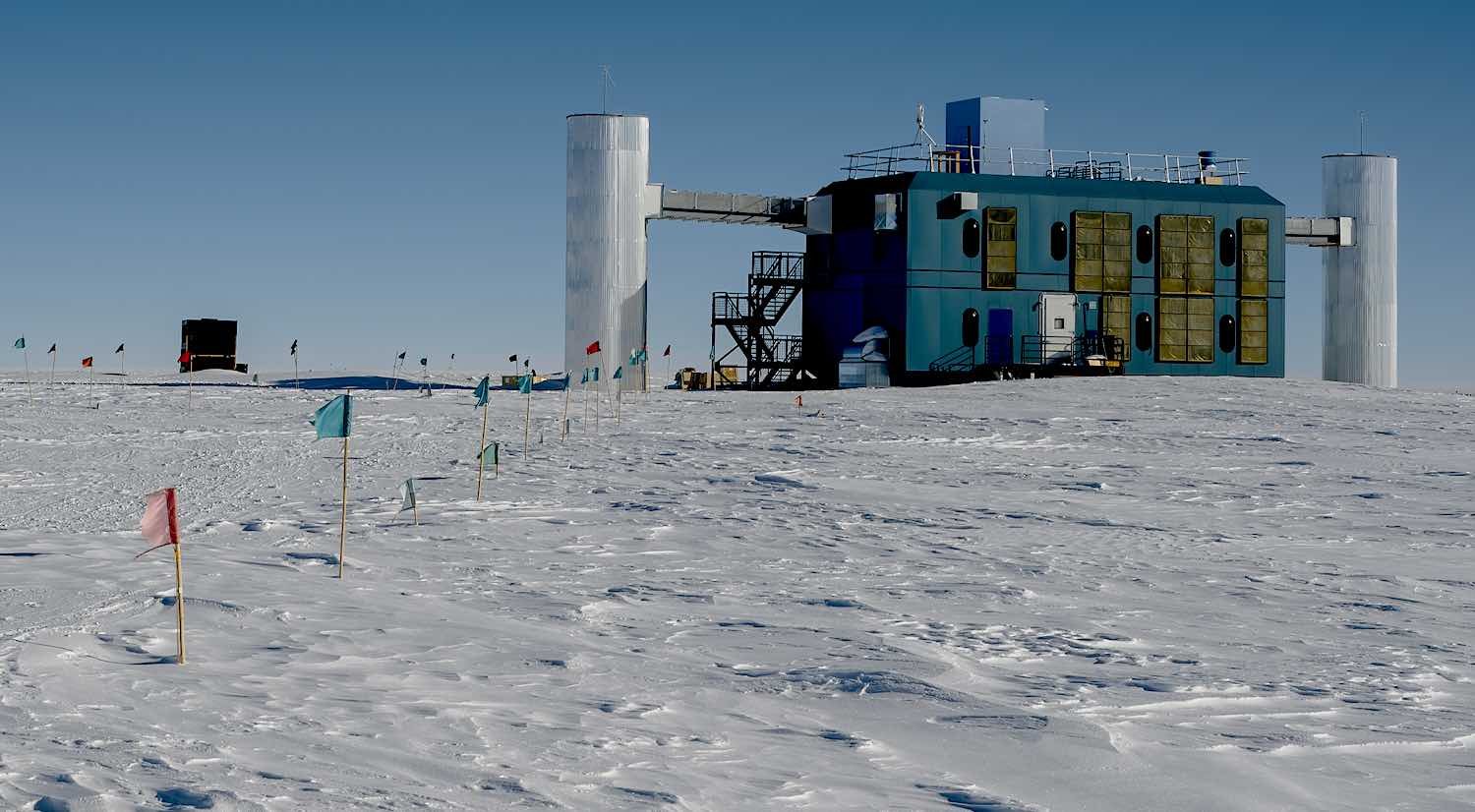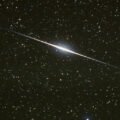Experiments at the South Pole have failed to detect measurable evidence for theoretical quantum gravity. While the researchers behind the experiments measuring possible effects of quantum gravity on a class of quantum particles known as neutrinos had hoped to find a positive result that could help unify the physics of the classical and quantum world, they say their results will help with future experiments that could ultimately detect quantum gravity, if it exists.
“The unification of quantum theory and gravitation remains one of the most outstanding challenges in fundamental physics,” explained Tom Stuttard, an Assistant Professor at the Niels Bohr Institute (NBI), University of Copenhagen, and part of the team conducting the experiments. “It would be very satisfying if we could contribute to that end.”
Detection of Quantum Gravity Could Unite the Two Worlds in Physics
Unfortunately for researchers, designing experiments to test for gravity at the quantum scale has proven particularly challenging for experimental physicists. That’s because measuring the effects of gravity on something so small, such as a change in the quantum particle’s state (referred to as its quantum coherence), is more likely to produce false results due to interference from other forces.
“In most experiments, the coherence is soon broken,” Stuttard explains. “But this is not believed to be caused by quantum gravity. It is just very difficult to create perfect conditions in a lab.”
This situation has repeatedly hampered efforts to confirm or refute the presence of quantum gravity, leaving physicists frustrated as to how to proceed.
“We find ourselves in a rare category of science projects, namely experiments for which no established theoretical framework exists,” Stuttard explains. “Thus, we just did not know what to expect. However, we knew that we could search for some of the general properties we might expect a quantum theory of gravity to have.”
If successful, the researchers say the detection of quantum gravity could rewrite the laws of physics by uniting the classical and quantum worlds.
“Today, classical physics describes the phenomena in our normal surroundings, such as gravity, while the atomic world can only be described using quantum mechanics,” Stuttard said. “If, as we believe, quantum gravity does indeed exist, this will contribute to unite the current two worlds in physics.”
Experiment Detects over 300,000 Neutrinos
Hoping to make such a historic detection, the researchers behind these latest experiments took their research to the most isolated location on the planet: the South Pole. There, at the IceCube South Pole Neutrino Observatory, they were able to place an array of sensors designed to detect high-energy neutrinos and measure their quantum coherence. If that coherence were broken, the likeliest suspect would be quantum gravity.
“Neutrinos are special in that they are simply not affected by matter around them,” Stuttard said, “so we know that if coherence is broken, it will not be due to shortcomings in the human-made experimental setup.”
The most interesting neutrinos in the cosmos can travel billions of light years without a change in their quantum coherence because they are incredibly small and have almost no mass. However, before the researchers tried to measure those neutrinos, they first tested the quantum coherence of neutrinos with a more localized origin.
Specifically, the team measured the state of neutrinos that are caused by the collision of cosmic rays in Earth’s atmosphere. Once produced, these local-origin neutrinos pass clean through the Earth before the South Pole detectors can detect them.
The researchers also say that the signal from this class of neutrinos is exceptionally free of interference. That’s because virtually all other types of particles are blocked by the Earth, allowing the detectors to study these local origin neutrinos in a virtually noise-free environment.
“When an atmospheric neutrino is detected at the Antarctic facility, it will typically have traveled through the Earth,” Stuttard explained. “Meaning approximately 12,700 km – a very short distance compared to neutrinos originating in the distant Universe.
Study Finds No Evidence of Quantum Gravity, but Stage is Set for Future Experiments
After a series of experiments, the research team says they collected data on over 300,000 neutrinos detected by their sensors. While the signal was as clean and free of interference as they had hoped, the team says they found no evidence that quantum gravity had any effect on the neutrinos’ quantum coherence. Still, the research professor cautions that his team’s findings in no way preclude the existence of quantum gravity.
“Whilst we did have hopes of seeing changes related to quantum gravity, the fact that we didn’t see them does not exclude at all that they are real.”
In fact, the team says their results, which are published in the journal Nature Physics, don’t disprove the presence of quantum gravity. Instead, they say it only proves that gravity isn’t strong enough to cause measurable effects on neutrinos that have only traveled a few thousand kilometers.
“Apparently, a much longer distance is needed for quantum gravity to make an impact, if it exists,” Stuttard said.
Moving forward, the researchers behind the experiment say their data should prove extremely valuable to researchers, including themselves, who hope to look for changes to the quantum coherence of neutrinos. That includes scientists who hope to study the possible effects of quantum gravity on those astrophysical neutrinos that originate from deep space.
“For years, many physicists doubted whether experiments could ever hope to test quantum gravity,” Stuttard explains. “Our analysis shows that it is indeed possible, and with future measurements with astrophysical neutrinos, as well as more precise detectors being built in the coming decade, we hope to finally answer this fundamental question.”
Christopher Plain is a Science Fiction and Fantasy novelist and Head Science Writer at The Debrief. Follow and connect with him on X, learn about his books at plainfiction.com, or email him directly at christopher@thedebrief.org.

